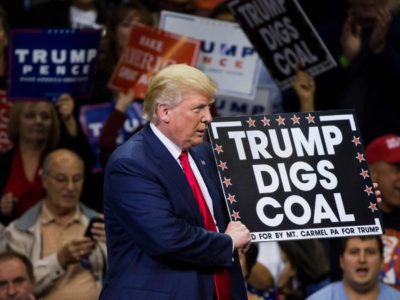Public Focus on Climate Change Slow to Develop, Hard to Sustain
The date was August 4, 1977, and Congressman Peter Rodino inserted, in the Congressional Record, an article from the New York Times that had run a week earlier. The Times article reflected on the Carter Administration’s effort to encourage the greater of coal as a power plant fuel. The Times said:
“The National Academy of Sciences flashed a warning light this week at plans to rely on coal as a major energy source in coming centuries. Not that oil or natural gas, for which coal is being substituted, are much better for the environment…If the industrialized nations continue to burn significant amounts of any fossil fuel for the next 200 years, the consequences could be catastrophic…The increased carbon dioxide might cause the average global temperature to rise six degrees centigrade by 2150, an amount roughly comparable to the temperature difference between our era and the last ice age. Such major climatic changes could disrupt agriculture and fishing, alter deserts and semi-arid regions, and cause the sea level to rise by 20 feet as ocean waters expand and ice caps slide into the sea.”
Ten years later, Al Gore announced his candidacy for President of the United States on a platform that focused on global warming, ozone depletion, and the ailing global environment. Five years after that, he published his book, Earth In the Balance, that addressed these concerns in detail. It would be yet another 15 years before Gore and the International Panel on Climate Change would win the Nobel Peace Prize for their efforts to elevate public attention to the need for a concerted effort to mitigate the effects of global warming.
 The public response that was missing for so many years was sudden and stunning. In an April 2008 poll conducted by the Pew Research Center for the People and the Press, 71 percent agreed that there was solid evidence of global warming, and about half of the respondents attributed this phenomenon to the effects of human activity. No doubt, surveys of this type supported a call to action by the Congress.
The public response that was missing for so many years was sudden and stunning. In an April 2008 poll conducted by the Pew Research Center for the People and the Press, 71 percent agreed that there was solid evidence of global warming, and about half of the respondents attributed this phenomenon to the effects of human activity. No doubt, surveys of this type supported a call to action by the Congress.
More recent Pew polling results suggest that public concern has subsided almost as quickly as it had grown. According to polling results published last month, belief in the existence of solid evidence supporting global warming has dropped from 71% to 57%. Perhaps more significantly, now only 36% see this problem as the result of human activity.
How could people, who were once so certain, change their minds so quickly? Opinions do tend to break down along party lines. Seventy-five percent of Democrats see solid evidence of a problem, while only 35% of Republicans do. But concern has faded across all sectors. Pew says that 91% of Democrats saw solid evidence in 2006, as did 59% of Republicans. Independents have fallen from 79% to 53%.
Maybe people can only worry about a limited number of things at any given time. The economic downturn and the Congressional focus on health care have grabbed the attention of many. But while that factor might change the relative ranking of problems (is the environment more important to people than health care, etc.), would this alone cause people to change their opinion about whether global warming is real?
It could be that people began to understand the problem only when there was a consistent high-volume flow of information in the press and on the air. The evidence may have seemed convincing, but the particulars were hard to retain. Now, with the public dialogue shifted to domestic problems, it is harder to remember why everyone was so worried.
If this is the case, there is reason to expect that public support for action will build again when the climate bills take center stage. However, the slow recognition of the problem over the years and the roller-coaster changes in the last 12 months suggest that the need for a high-level and persistent public discussion of the issues remains unabated.







Reader Comments